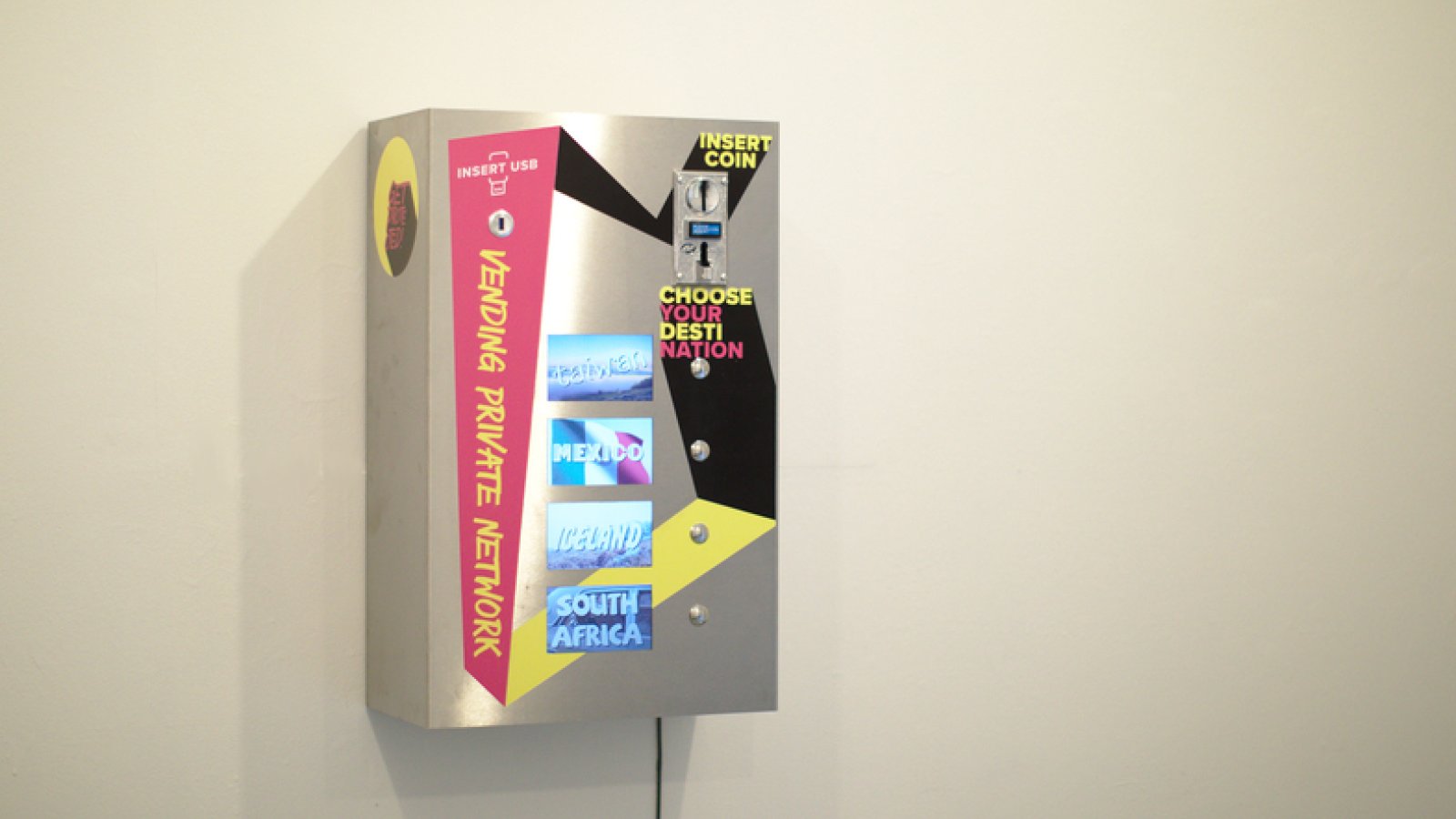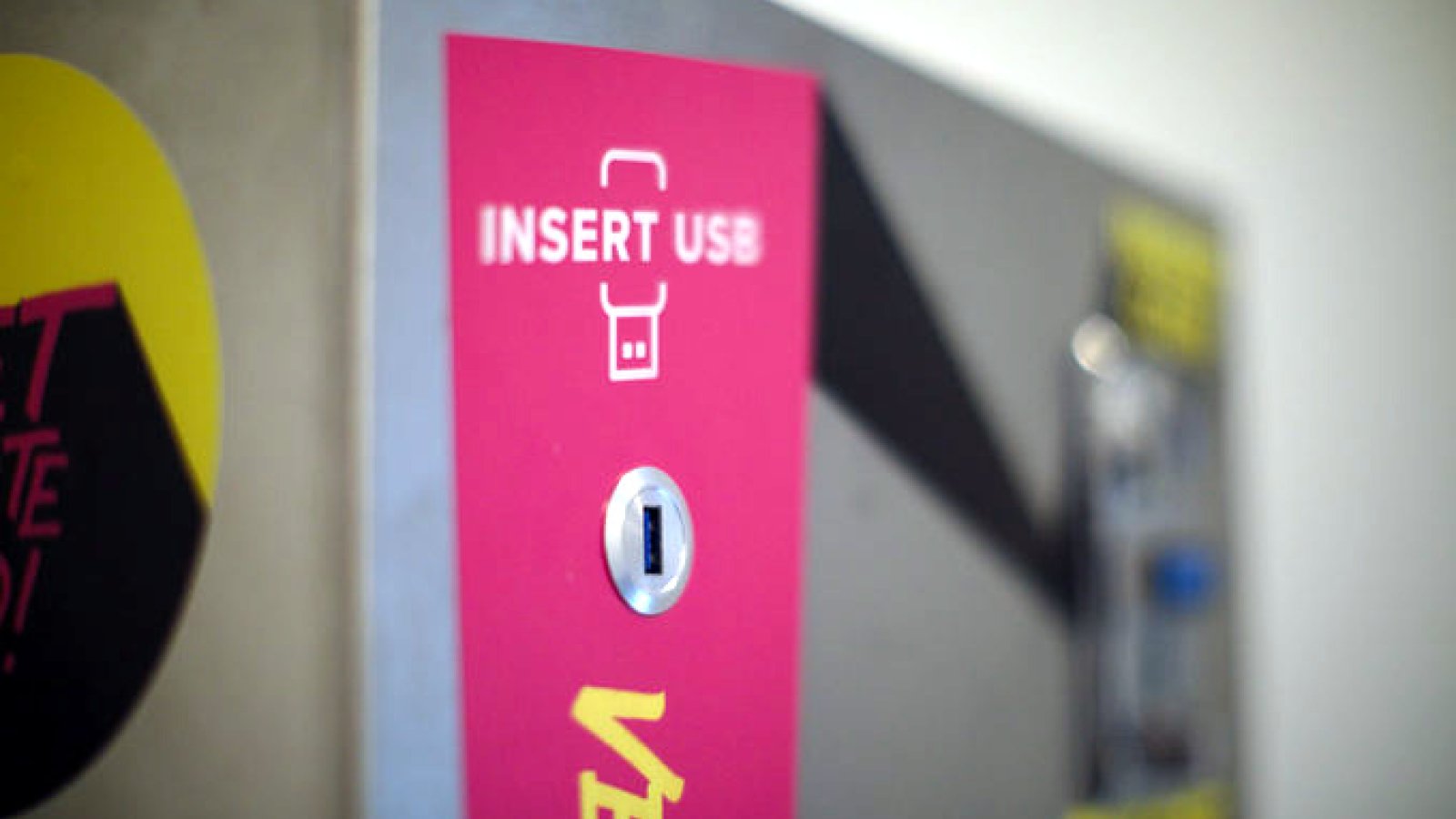

Virtual Private Networks (VPNs) have come into increasing demand in recent years, providing route encryption through hostile networks. In China, Vietnam, Turkey and Pakistan they also serve to mitigate government censorship, such that foreign sites otherwise blocked by state firewalls are made available to VPN users (Twitter, Facebook, Wikipedia, activist sites and digital libraries being the most common).
Vending Private Network takes the form of a condom vending machine, such as those typically seen in public toilets, nightclubs and bars. Equipped with mechanical buttons, a coin-slot and USB ports, it offers 4 VPN routes, each with an animated graphic depicting the route as a fantasy destination.
Audiences are invited to insert a USB stick into the slot, a coin (1 pound or euro) into the machine, and to select a VPN destination by pressing a mechanical button. In doing so, a unique VPN configuration file is then written to the USB stick. Special instructions (in the form of a README.txt) are also copied, explaining how to use the VPN in a special ‘sheathed’ mode that evades detection methods (namely Deep Packet Inspection, or DPI) used by corporations and state-controlled infrastructure administrators. This is the only means known to work against state controlled firewalls.
Vending Private Network is especially designed for use in wealthy countries; only then can its ulterior motive come into play: leveraging economic and cultural privilege to benefit those less fortunate. With each VPN config paid for, another 'shadow config' is generated, to be later shipped to dissidents, activist organisations and others in Turkey, China, Vietnam, Afghanistan, Iran (other countries to be confirmed) such that those that need it most can enjoy protection and access to the open web.
The coins inserted into the vending machine also directly fund the VPN running costs, whose tally is displayed on each screen of the vending machine. Should a particular VPN not have enough money deposited to pay for monthly server hosting costs, it is shutdown, with a white on black notice on the display that it no longer functions due to insufficient public funding. Should money sufficient to cover costs be donated the dormant server will boot back to life and public service continues. Just as one might expect to see on a condom vending machine, Vending Private Network is adorned with the sticker "Get Protected".